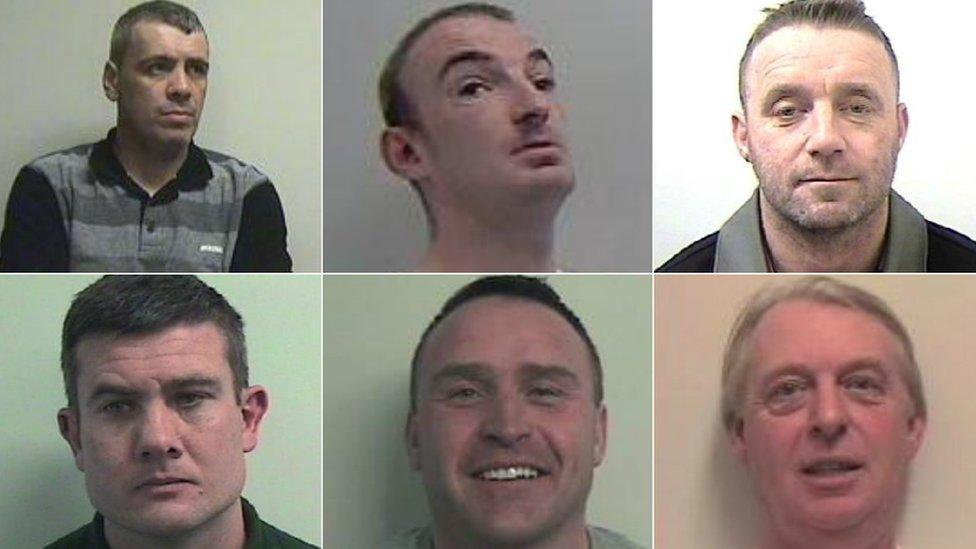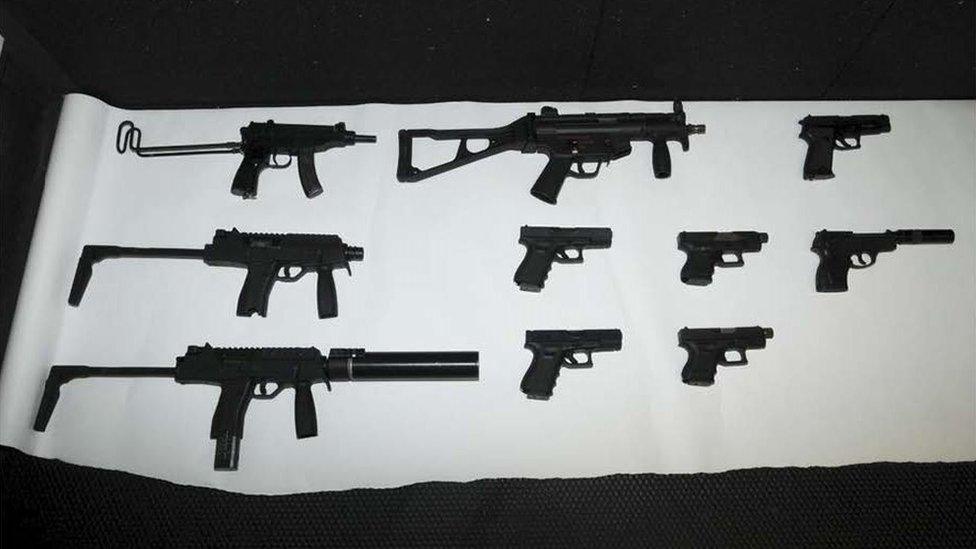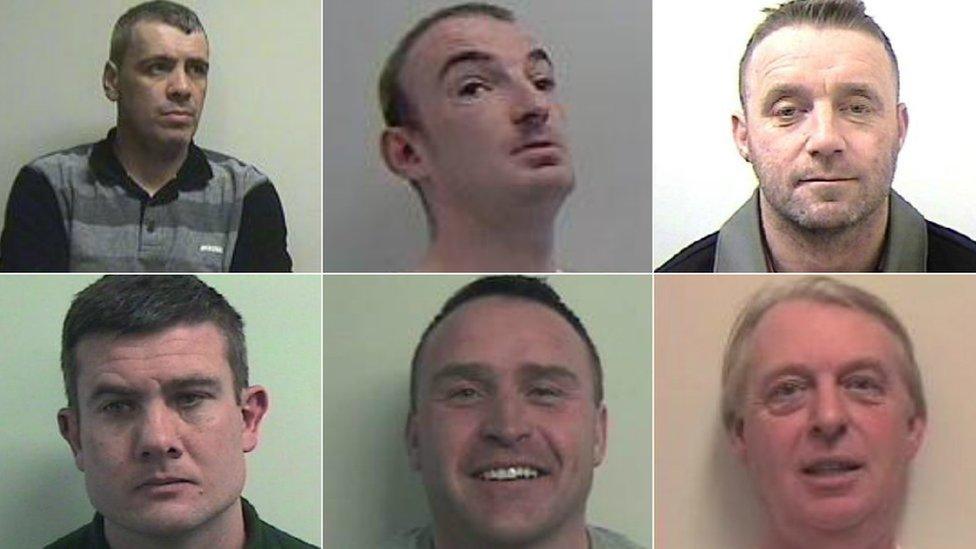Cocaine dealer fears 'Xbox ban' on release from prison
- Published

Clockwise from top left: Gerard Docherty, Steven McCardle, Francis Mulligan, David Sell, Barry O'Neill and Martyn Fitzsimmons.
A member of Scotland's top crime gang fears prosecutors will stop him playing computer games when he is freed.
Barry O'Neill was back in the dock 24 hours after he and eight others were jailed for a total of 87 years.
A further hearing took place after moves were made to impose Serious Crime Prevention Orders (SCPO) on the group.
O' Neill's lawyer said she was worried such restrictions would be so draconian they would prevent him playing on an Xbox with his children.
All nine members of the gang returned to the High Court in Glasgow amid tight security.

What are Serious Organised Crime Prevention Orders?
SCPOs are designed to ensure the "lifetime management" of criminals, including their business dealings, communications and movements once they are released from jail.
The orders can also limit their access to mobile phones and require them to notify police about all foreign travel.
In theory, they are designed to make it as difficult as possible for offenders to return to a life of crime when they are released.
The model has been compared to the management of sex offenders in that it can place restrictions on criminals until they day they die.

Mhairi Richards QC again represented O'Neill, who was jailed for seven years and four months for cocaine dealing.
SCPOs have been available to prosecutors since March 2016 in a bid to restrict the activities of criminals after they are released from prison.
But the advocate told the court she had some concerns about how the procedure had been adopted.
Ms Richards claimed the terms of the order could mean O'Neill "cannot sit on his own couch with one of his children playing Xbox" when he is released.
The QC added: "That (details of the order) is only going to have significant impact on his family."
Judge Lord Beckett said he would encourage her to have further discussion with prosecutors.
But the advocate responded: "I think it is a shut door."
The hearing was continued until Friday.

Firearms were used to enforce the gang's lucrative drugs operations
As well as O'Neill, David Sell, 50, Anthony Woods, 44, Francis Mulligan, 41, Michael Bowman, 30, Mark Richardson, 30 and Martyn Fitzsimmons, 37, also face restrictions when they are released.
Two other gang members - Gerard Docherty, 42, and Steven McArdle, 33, - did have a SCPO imposed on them, though, after their lawyers came to an agreement with prosecutors.
Docherty was earlier jailed for 10-and-a-half years for a shooting at a house in Edinburgh.
McArdle was sentenced to seven years and 100 days for having a Glock gun.
Details of the order were not read out in court but it is understood it will last for five years and includes them not having contact with a certain "list of persons".
- Published25 January 2018

- Published22 January 2018

- Published22 January 2018

- Published11 December 2017
